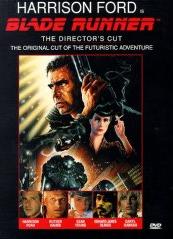In 1992, the year of his death, Isaac Asimov was awarded the Hugo Award for best novella for writing Gold. This story, along with many others was published in 1995. Along with 14 other short stories, there are collections of essays called “On Science Fiction,” and “Writing Science Fiction.” Interestingly enough, I found the essays much more interesting than the stories themselves. I think this is partly because I have read a TON of his fiction, but haven’t got around to reading his non-fiction. I’ll give a brief overview of the essays, saving the stories for later.
On Science Fiction
Here, Asimov gives us a brief history of the roots of Science Fiction. He also describes the origins of the robot concept, tracing the roots back to the eighteenth book of Homer’s Iliad. Also, he goes over very early books like Mary Shelly’s Frankenstein and H.G. Wells’ The Time Machine. Asimov also describes the evolution of Science Fiction in media, from the early magazines (of which he was an avid reader), to books, movies, and TV. Some of the names he listed were completely foreign to me. I think at some time in the future, I’ll look up some of his favorite authors of the time and check them out. He also talks about Science Fiction’s effect on technology and gives a couple examples of some technologies that he is attributed to predicting.
Writing Science Fiction
As I was reading the essays, it felt like he was talking to me, and in turn I was getting to know him as a person, not just a writer. His writing style is very smooth and easy to read. I believe it is a testament to his claim that when he writes, he just writes. At several points he congratulates himself on his ability to simply write with very little revision, essentially just correcting grammar and word placement once everything is done. After all, being one of the most prolific writers his time, or any time for that mater, he did have the right to have a strong sense of self-esteem.
One tidbit that I found very interesting is that Asimov had never really made use of outlines when writing stories. He would usually just work out an opening, and an ending, and make everything up along the way. Simply put, his characters would take on a life of their own. Another fact, which I already was aware of, is that he heavily relies on dialogue between characters, and there is very little “action” along the way. His books, at least to me, seem to be more cerebral than many others I have read.
The Stories
The title story, Gold, is an interesting one, especially around these times of economic turmoil. Gold, today in the real world, is topping $1000(US) an ounce while digital money has lost much of its value. A relatively unknown author seeks the help of a world famous director to produce a compu-drama from his book. These compu-dramas were basically movies heavily reliant on technology, interestingly enough much as our current movies are evolving into. I won’t spoil the plot, but the book in the story is very reminiscent of The Gods Themselves. The author admits that he is just an average writer, but wants to be immortalized by having his book made into a compu-drama. The director, on the other hand, is already one of the most famous figures in the entertainment industry. The author has everything to gain, while the director has everything to lose. Why then, should the director take the risk of taking on this new project? Gold was the offer, nearly impossible to find, having an equivalent value in credits, but with the sense of tangibility, not just a number on a computer screen.
Gold was a very interesting story, well worth anyone’s time to check out. As for the other stories, there is a diverse mix of plots present. They include science experiments, space exploration, artificial intelligence, and time travel to name a few. Of these remaining stories, my favorites include Cal (which I’ve read previously), Alexander the God, and Kid Brother.
I highly recommend this book as a must have for any Isaac Asimov fan, or Science Fiction fan for that matter. Also, the final section can serve as a general starting point for those interested in writing.

